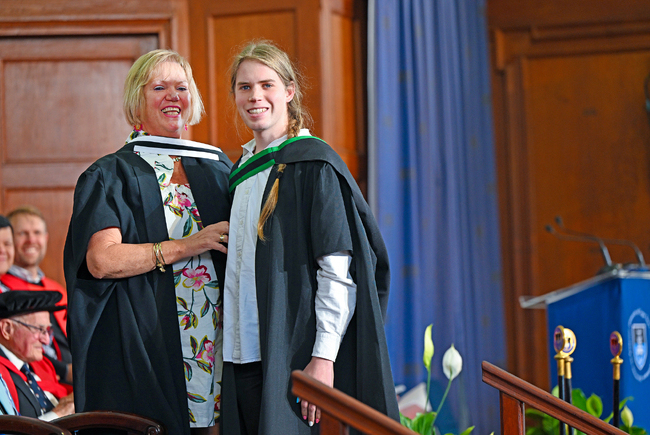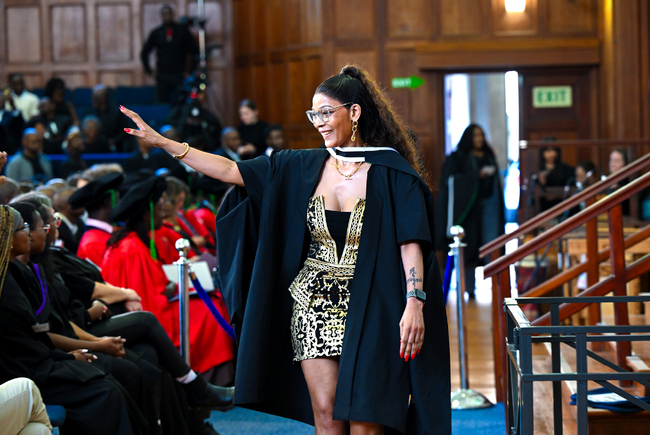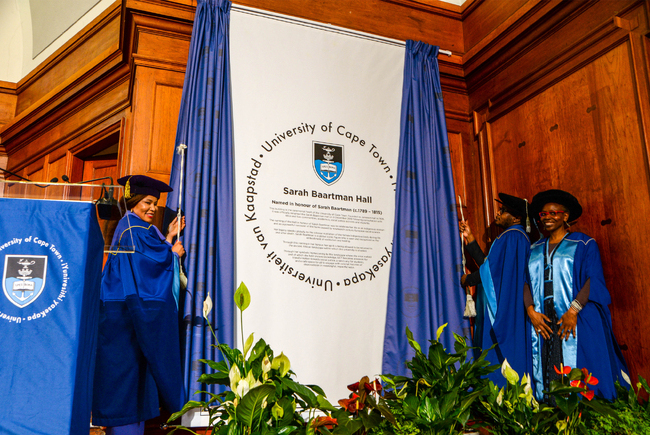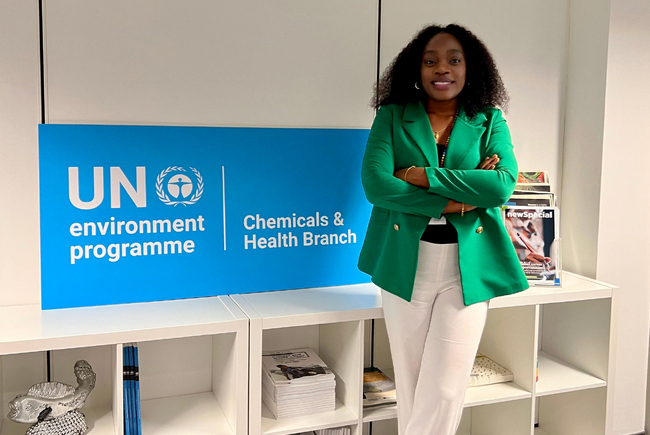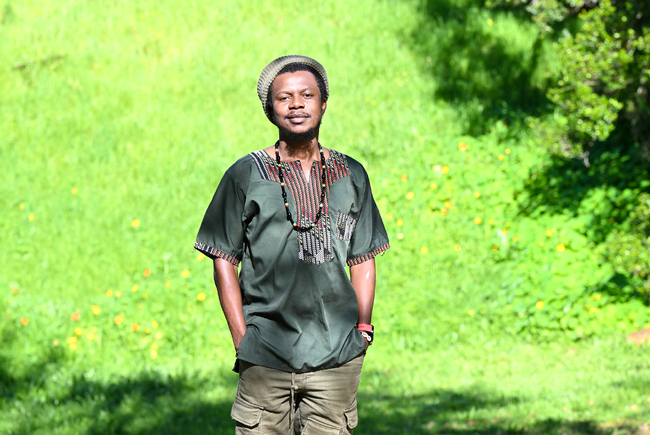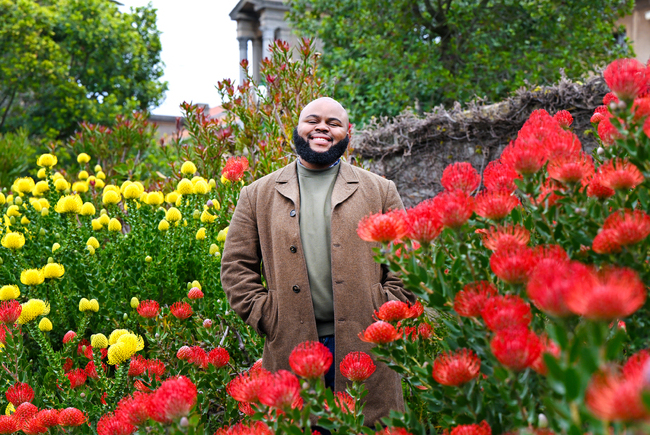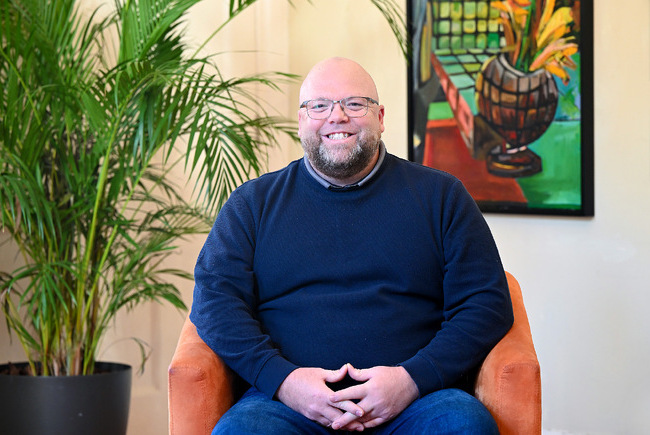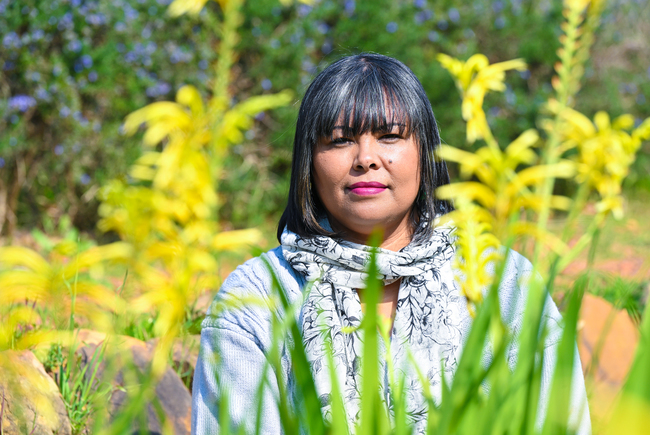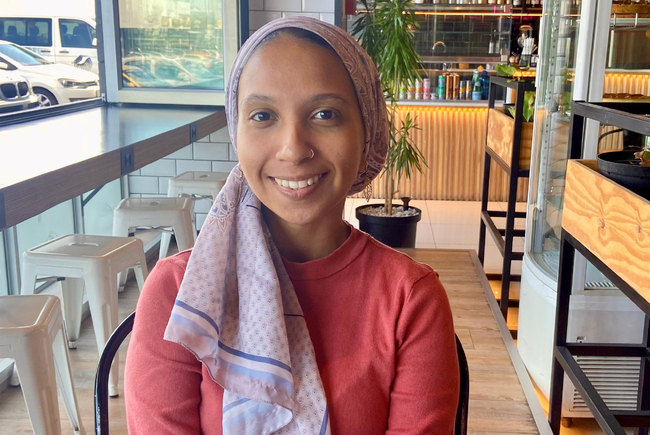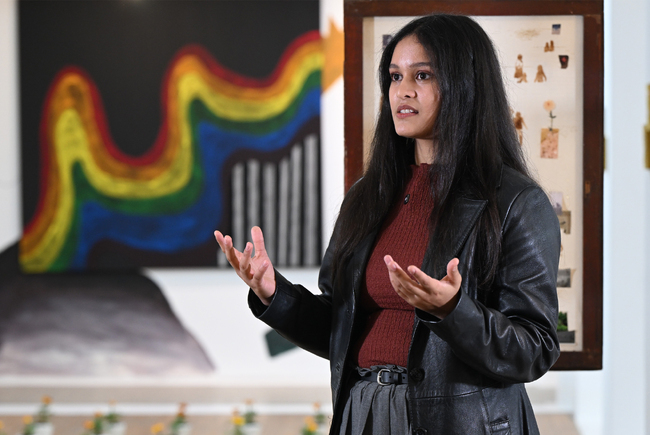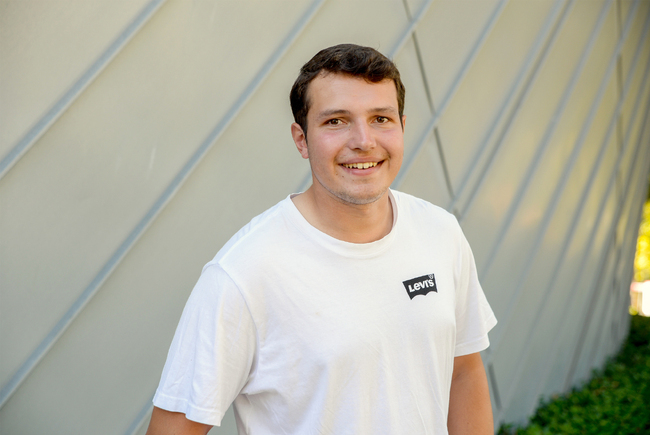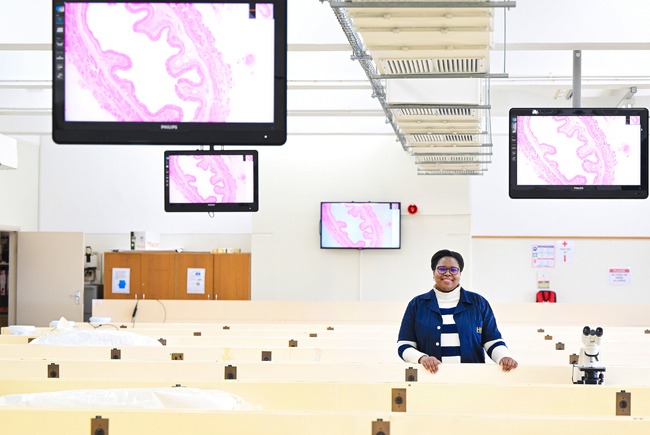Shaping global chemical safety and workers’ health
11 September 2025 | Story Myolisi Gophe. Photos Supplied. Read time 7 min.
When Dorothy Amaleck Ngajilo arrived at the University of Cape Town (UCT) 12 years ago to begin her postgraduate studies, she was searching for a discipline that could combine her two passions: clinical medicine and public health. A decade later, and her journey has taken her from hospital wards and field research sites to the world stage.
Today, as the health and labour officer at the United Nations Environment Programme (UNEP) in Switzerland, she is shaping global policies designed to protect workers, communities, and the environment from the harmful effects of chemicals.
“It’s never one-size-fits-all,” Dorothy reflected in an interview ahead of her graduation from UCT this week, where she will formally receive her PhD. “Every country has its own systems, but we also need solutions broad enough to be applied globally. The key is making sure workers and communities are never forgotten in these conversations.”
Her appointment comes at a critical time. In September 2023, governments, industry, and civil society adopted the Global Framework on Chemicals in Bonn, Germany. The agreement commits the international community to making chemical production, use, and disposal safer by 2030 and 2035. It also establishes a new funding mechanism, prioritising support for developing countries where regulatory systems are often weaker and communities more vulnerable.
“It’s a unique agreement because everyone has a seat at the table.”
For Dorothy, the framework represents a rare opportunity for collective action. “It’s a unique agreement because everyone has a seat at the table – governments, [Non-Governmental Organisations] NGOs, industry, youth groups, and workers. Chemicals are part of all our lives, so the solutions have to be inclusive,” she said.
Her role at UNEP involves working closely with the World Health Organization (WHO), the International Labour Organization (ILO), and other agencies to implement the framework, monitor progress, and ensure health and labour issues are kept at the forefront.
Chemicals in daily life
The scope of the challenge is daunting. Chemicals underpin modern life, from plastics and cosmetics to agriculture and medicine. But their benefits come with risks: cancers linked to pesticides, respiratory diseases from dust and fumes, developmental disorders caused by exposure to toxins, and environmental damage from improper disposal.
“The safe and sustainable management of chemicals has to be thought of as a whole cycle,” Dorothy explained. “From extraction to manufacturing, to use and recycling or disposal – at every stage there are actors, and at every stage there are risks.”
One of the thorniest issues is transparency. Many companies resist disclosing the full contents of their products, citing intellectual property rights. But Dorothy argues that this lack of transparency undermines health and safety.
“People have the right to know what they are using or working with,” she said. “Workers, in particular, must be protected. Chemicals affect men and women differently; they affect young and older people differently; and social and economic factors also shape how people experience chemical exposure.”
Governments, too, bear responsibility. From regulating imports to managing waste, their policies directly affect communities’ safety. “You might think of chemicals as jars of substances, but even plastics and cosmetics contain chemicals that leach into the environment, our food systems, and ultimately our bodies. Governments and consumers need to be vigilant.”
Caring for those who care
Her insistence on worker protection has deep roots in her career. After qualifying as a medical doctor in Tanzania, she moved to South Africa to specialise in occupational medicine at UCT, graduating in 2017. During her training, she worked at Groote Schuur Hospital and Cape Town’s Red Cross War Memorial Children’s Hospital, helping design occupational health programmes for health workers.
“We called it ‘caring for those who care’,” she recalled. “That experience showed me how policy can translate into protection in workplaces. When you see a nurse or doctor safer because of a simple intervention, you understand the value of occupational health.”

Her expertise drew global attention during the COVID-19 pandemic, when she joined the WHO as a consultant. She co-developed global guidance and tools on protecting health workers, drawing lessons from Ebola outbreaks where medical staff had been up to 20 times more at risk than the general population.
“During COVID, we clapped for health workers, but once the crisis was over, the world forgot again,” she said. “The truth is that health workers face risks every day. Musculoskeletal injuries, chemical exposures, violence, burnout, and even suicide. Keeping them safe must remain on the global agenda, pandemic or not.”
Research rooted in Africa
Alongside her international roles, Dorothy continued her academic journey. Her PhD research at UCT examined occupational health risks in Zanzibar’s seaweed farming sector, an industry dominated by women and often overlooked in mainstream studies.
Her findings revealed a range of hazards, from musculoskeletal strain to skin problems caused by prolonged water exposure. But just as important, her work highlighted how gender, poverty, and social norms shape people’s experiences of workplace health.
“UCT allowed me to combine my passion for clinical medicine and public health in occupational medicine.”
“It’s not only about the chemicals or the environment. It’s also about who is doing the work, under what conditions, and with what protections,” she explained. “For me, occupational health is always about context.”
That grounding in African realities, she believes, makes her particularly well placed to influence global policy. “UCT allowed me to combine my passion for clinical medicine and public health in occupational medicine,” she said. “And now, to bring that knowledge to a global level feels like a full circle.”
Building momentum
At UNEP, Dorothy is now focused on helping countries put the Global Framework on Chemicals into action. Targets include strengthening national regulatory systems, increasing data transparency, and building safer supply chains. Preparations are also under way for the first International Conference on Chemicals, set for 2026, where stakeholders will review progress and adopt further action plans.
She is realistic but optimistic about the scale of the task. “We have 28 targets to reach by 2030 and 2035. That’s ambitious, but it reflects the scale of what is needed. If we make progress on the most critical ones for health and labour, the impact on workers and communities will be profound,” she said.
Her philosophy is simple: impact is measured in lives protected. “If you can prevent even one person from being harmed by chemical exposure, that’s meaningful work. That’s what makes me want to get up and do this every day.”
A voice for the voiceless
Dorothy hopes to ensure that the voices of workers and communities, especially in the Global South, remain central in international debates. She believes strongly that industry must be part of the solution but insists that accountability cannot be compromised.
“Industry employs the workers most exposed, they innovate, and they have resources. Excluding them would make no sense,” she said. “But it’s our responsibility to make sure solutions prioritise health and sustainability, not just profit.”
She concluded: “The ultimate goal is that workers and communities everywhere can live and work safely, even in a world where chemicals are unavoidable.”
 This work is licensed under a Creative Commons Attribution-NoDerivatives 4.0 International License.
This work is licensed under a Creative Commons Attribution-NoDerivatives 4.0 International License.
Please view the republishing articles page for more information.
Spring 2025 Graduation

The University of Cape Town (UCT) hosted graduation ceremonies from Monday, 8 September until Wednesday, 10 September 2025. The ceremonies were livestreamed on the website and UCT’s Facebook page (recommended for mobile devices like cell phones and tablets), and the video recordings will be available on this feature page and UCT’s YouTube channel as soon as possible after the event.
Graduation news
Graduation news

The University of Cape Town’s (UCT) Chancellor Dr Precious Moloi-Motsepe and Vice-Chancellor Professor Mosa Moshabela urged graduates at the spring graduation to use their education to enrich not only their own lives but also their communities, stressing the importance of values such as compassion, respect, and integrity in a volatile world.
25 Sep 2025
The University of Cape Town’s (UCT) spring graduation was marked by historic milestones, including the awarding of honorary doctorates to four distinguished individuals and the official renaming of Jameson Hall to Sarah Baartman Hall, among other notable highlights.
25 Sep 2025Inspirational graduates
Our stories: inspirational graduates
The UCT News team has profiled a cross-section of inspirational graduands whose stories have inspired us. To all those we haven’t been able to feature, we’d like to say: each one of you is an inspiration – to your university, your families and your communities. We wish you every success in the future.
Ceremony recordings
Ceremony recordings
Graduation programmes
The names of all of the spring 2025 qualifiers are listed in the graduation ceremony programmes. Congratulations to everyone who has graduated.
We are excited to see our UCT graduates unleash their potential for a fair and just society. Thank you for joining the celebrations on social media by using the #UCTGrad2025 hashtag.
Social media elements#UCTGrad2025 – social media elements
Customised Facebook and Instagram stickers are available on our social media platforms. Watch the tutorial videos here to see how easily you can get your online presence ready.












